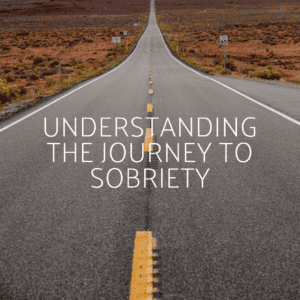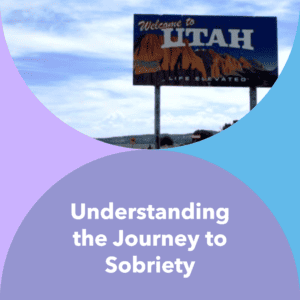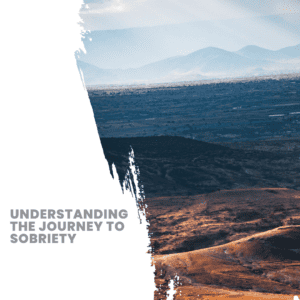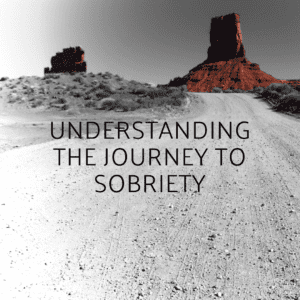 Alcohol addiction is a serious issue affecting millions of people across the United States. It can devastate an individual’s life, relationships, and overall health. If you or someone you know is struggling with alcohol addiction in Utah, seeking professional help is the first step toward recovery.
Alcohol addiction is a serious issue affecting millions of people across the United States. It can devastate an individual’s life, relationships, and overall health. If you or someone you know is struggling with alcohol addiction in Utah, seeking professional help is the first step toward recovery.
Understanding the journey to sobriety is essential in overcoming alcohol addiction. It is a process that requires commitment, dedication, and support. Finding the right treatment options and rehab facilities can make a significant difference in ensuring a successful recovery.
Understanding Alcohol Addiction
Alcohol addiction, also known as alcohol use disorder (AUD), is a chronic disease that affects millions of Americans. It is characterized by the inability to control alcohol consumption despite the negative consequences it may have on one’s health, relationships, and daily life.
The cause of alcohol addiction is multifactorial, and may include genetic, environmental, and social factors. Some individuals may be more predisposed to developing AUD due to a family history of addiction, while others may turn to alcohol as a coping mechanism for stress or trauma.
Alcohol addiction can have a profound impact on one’s physical, mental, and emotional wellbeing. It may lead to liver disease, high blood pressure, and an increased risk of certain types of cancer. In addition, individuals with AUD are more likely to experience depression, anxiety, and other mental health disorders.
Signs and Symptoms of Alcohol Addiction
| Physical Symptoms | Behavioral Symptoms |
|---|---|
| Flushed skin | Drinking alone or in secret |
| Trembling hands | Missing work or school due to drinking |
| Weight loss or gain | Continuing to drink despite negative consequences |
| Blackouts or memory loss | Neglecting responsibilities |
| Redness of the eyes | Increased irritability or mood swings |
| Stomach pains or nausea | Decreased interest in hobbies or activities |
| Slurred speech | Defensiveness about drinking |
 The Importance of Getting Help
The Importance of Getting Help
“Alcohol addiction is a serious disease that requires professional treatment. Without intervention, it can lead to severe health problems and even death. Seeking help is the first step towards recovery.”
Fortunately, there are numerous treatment options available for individuals struggling with alcohol addiction. These may include inpatient or outpatient rehab programs, therapy, and support groups. It is important for individuals to work with their healthcare providers to determine which options are best suited for their individual needs.
Alcohol Rehabilitation Programs in Utah
Utah offers a variety of alcohol rehabilitation programs to help individuals overcome addiction. These programs range from inpatient to outpatient and offer different approaches to treatment.
Types of Alcohol Rehab Programs in Utah:
- Inpatient treatment programs: These programs provide 24-hour care in a residential setting. Patients live at the facility for the duration of their treatment, which typically lasts between 30 and 90 days.
- Outpatient treatment programs: These programs allow patients to receive treatment while continuing to live at home. Patients attend therapy sessions and other treatment activities on a regular basis, but are able to return home at the end of the day.
- Detox programs: These programs provide medical supervision and support for patients who are going through alcohol withdrawal. Detox programs typically last between 3 and 7 days.
- Dual diagnosis treatment programs: These programs are designed for patients who have both a substance use disorder and a mental health disorder. They provide integrated treatment for both conditions.
- Holistic treatment programs: These programs take a whole-person approach to treatment, addressing the physical, emotional, and spiritual aspects of addiction. They may include activities such as yoga, meditation, and acupuncture.
- Faith-based treatment programs: These programs incorporate religious or spiritual beliefs into the treatment process. They may be based on a specific religion or be more broadly focused on spirituality.
It’s important to note that not all treatment programs are created equal, and what works for one person may not work for another. It’s important to choose a program that is tailored to your individual needs and preferences.
Sources: https://healthcare.utah.edu/hmhi/treatments/addiction-recovery
Rehab Centers in Utah: Choosing the Best Match
Selecting the right rehab center in Utah is pivotal to the success of one’s recovery journey. The decision should be based on personal needs, preferences, and the effectiveness of the treatment center.
- Success Rates: Before making a choice, it’s crucial to review the success rates of the rehab center. This data can usually be sourced from the center’s official website or by directly consulting with their representatives.
- Program Duration: The length of the program plays a significant role in the recovery process. Inpatient programs often span 30, 60, or 90 days. On the other hand, outpatient programs might have varying durations.
By considering these factors, one can make an informed decision that aligns with their recovery goals.
Rehab Centers in Utah: Personalized Treatment Options
 Rehabilitation centers in Utah are diverse, each offering distinct programs tailored to cater to the unique needs of individuals. While some centers excel in addressing co-occurring disorders, others might be more adept at catering to specific age demographics.
Rehabilitation centers in Utah are diverse, each offering distinct programs tailored to cater to the unique needs of individuals. While some centers excel in addressing co-occurring disorders, others might be more adept at catering to specific age demographics.
- Individualized Treatment Plans: The cornerstone of successful recovery often lies in personalized treatment strategies. These ensure that the individual’s unique challenges and needs are addressed comprehensively.
- Research is Key: Before settling on a rehab center, it’s imperative to delve into their programs. Give the center a call and ask any questions you may have. This ensures alignment with the individual’s specific requirements.
- Seek Expert Advice: Engaging with healthcare professionals or addiction specialists can shed light on the most suitable programs, enhancing the chances of a successful recovery journey. Talk to an expert at Liberty Addiction Recovery, we are happy to help, regardless of where you ultimately attend rehab.
The Journey to Sobriety: Steps to Recovery
 Overcoming alcohol addiction is a journey that requires commitment, dedication, and perseverance. While everyone’s path to recovery may look different, there are common steps involved in the journey to sobriety. These steps include:
Overcoming alcohol addiction is a journey that requires commitment, dedication, and perseverance. While everyone’s path to recovery may look different, there are common steps involved in the journey to sobriety. These steps include:
- Detoxification: The first step in the journey to sobriety is detoxification, which involves ridding the body of alcohol and managing withdrawal symptoms. This can be a challenging and uncomfortable process, but it is an essential step towards recovery.
- Therapy: Once detoxification is complete, individuals can begin therapy to address the underlying causes of their addiction. This may involve individual therapy, group therapy, or a combination of both. Therapy can help individuals develop coping mechanisms and strategies for maintaining sobriety.
- Aftercare: After completing a formal treatment program, individuals can benefit from ongoing care and support through aftercare programs. This may involve participation in support groups such as Alcoholics Anonymous or continued therapy sessions with a mental health professional. Aftercare is crucial for maintaining long-term sobriety.
It is important to note that the journey to sobriety is not a linear process and may involve setbacks and challenges. However, with the right support and resources, it is possible to overcome alcohol addiction and maintain lasting sobriety.
Overcoming Alcohol Dependency: Challenges and Strategies
Overcoming alcohol dependency is a challenging journey that requires dedication, commitment, and support. The process of recovery is not always easy, and individuals may face obstacles that can hinder their progress. However, understanding these challenges and developing strategies to overcome them can help individuals build the skills and resilience needed to maintain sobriety.
Challenges
One of the biggest challenges individuals face in overcoming alcohol dependency is the fear of relapse. Even after completing rehab and achieving sobriety, the risk of relapse remains a constant threat. Other challenges include:
- Cravings and triggers – individuals may experience intense cravings and triggers that can lead to relapse.
- Mental health issues – many individuals struggling with alcohol addiction also struggle with underlying mental health issues, such as depression or anxiety.
- Social pressure – social situations may present challenges for individuals seeking to maintain sobriety.
- Isolation – isolation can lead to feelings of loneliness, which can trigger alcohol use as a coping mechanism.
Strategies
 Fortunately, there are strategies individuals can use to overcome these challenges and maintain lasting sobriety. These include:
Fortunately, there are strategies individuals can use to overcome these challenges and maintain lasting sobriety. These include:
- Developing a support system – having a support system can help individuals feel less isolated and provide accountability and encouragement.
- Coping mechanisms – finding healthy ways to cope with stress and triggers can help individuals avoid turning to alcohol as a coping mechanism.
- Practicing self-care – taking care of physical, emotional, and mental health is essential to maintaining sobriety.
- Engaging in aftercare programs – aftercare programs, such as counseling or support groups, can provide ongoing support and structure for individuals in recovery.
- Maintaining motivation and positivity – staying motivated and positive helps individuals stay focused on their goals and remain committed to their sobriety.
Overall, overcoming alcohol dependency is a complex process that involves many challenges and requires effort, but it is possible. With the right support, strategies, and mindset, individuals can achieve lasting sobriety and reclaim their lives.
Conclusion
Alcohol addiction can be a challenging journey, but it is important to remember that there is hope and support available for those seeking alcohol rehab in Utah. By understanding the nature of addiction, the available treatment options, and the challenges involved in recovery, individuals can take the necessary steps towards sobriety.
It is crucial to find the right rehab center in Utah that caters to individual needs and preferences, with a focus on a holistic approach to recovery. Ongoing care and aftercare programs are also essential in maintaining sobriety and preventing relapse.
If you or a loved one is struggling with alcohol addiction, don’t hesitate to reach out for help. Taking the first step towards sobriety is a brave decision, and with the right support and resources, lasting recovery is possible.
FAQ
Q: What is alcohol rehab?
A: Alcohol rehab refers to a treatment program specifically designed to help individuals overcome their addiction to alcohol. It typically involves a combination of therapy, support groups, and medical intervention to address the physical, mental, and emotional aspects of addiction.
Q: How long does alcohol rehab usually last?
A: The duration of alcohol rehab varies depending on the individual’s needs and the severity of their addiction. In general, treatment programs can range from 30 days to several months. Longer programs are often recommended for individuals with more complex addiction issues.
Q: What are the different types of alcohol rehab programs?
A: There are several types of alcohol rehab programs available, including inpatient rehab, outpatient rehab, and intensive outpatient programs (IOPs). Inpatient rehab involves staying at a facility full-time for a designated period, while outpatient rehab allows individuals to live at home and attend therapy sessions. IOPs offer a combination of inpatient and outpatient services.
Q: How effective is alcohol rehab?
A: The effectiveness of alcohol rehab depends on various factors, such as the individual’s dedication to recovery, the quality of the program, and the support they receive. Overall, alcohol rehab has been shown to significantly improve the chances of long-term sobriety and provide individuals with the tools they need to maintain a healthy, alcohol-free lifestyle.
Q: What should I look for in an alcohol rehab program?
A: When choosing an alcohol rehab program, it’s important to consider factors such as the program’s accreditation, treatment approach, success rates, and aftercare support. It’s also crucial to find a program that aligns with your personal needs and preferences, including location, cost, and specialized services.
Q: Can I afford alcohol rehab?
A: The cost of alcohol rehab varies depending on the program and level of care. Many rehab facilities accept insurance, and there may be financing options available. It’s important to reach out to your insurance provider and the rehab facility directly to discuss payment options.
Q: What happens after alcohol rehab?
A: After completing alcohol rehab, individuals are encouraged to continue their recovery journey by participating in aftercare programs, such as ongoing therapy, support groups, and in some cases, sober living arrangements. These programs provide continued support and guidance to help maintain sobriety and prevent relapse.
Sources:

 The Importance of Getting Help
The Importance of Getting Help




